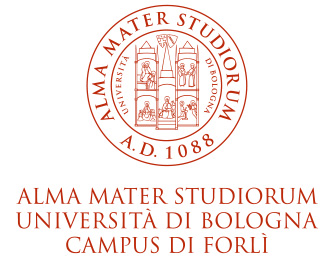Thesis research activity
Students must spend the first semester of the second year at a Partner or Associate Partner University of the Consortium and obtain the foreseen credits, while researching and selecting materials and documents as well as conducting any other research activities related to their thesis.
Deposit of the provisional thesis title
Within the month of December, during the mobility period, students are expected to deposit the provisional thesis title and choose a supervisor amongst the Professors giving lectures in the relevant academic year (year of graduation) listed in Miress Faculty. The title proposal form can be downloaded from this page. Any subsequent changes to the provisional title/topic shall be approved by the supervisor and communicated to didatticaforli.mirees@unibo.it
Work in Progress (WiP) meeting
During the second year, close to the end of the compulsory mobility abroad, students are expected to attend a WiP meeting at the Host University mobility destination, in order to present a draft concept of the thesis. During the WiP, students should be able to present: an outline of the chosen topic, grounded in a preliminary literature review; methodological reflections on how the project will be carried out; a possible structure of the thesis; a supportive bibliography. A thesis proposal form is available for download at this page. The documents length should be between 1-5 pages.
Each student will have 15 minutes to present their thesis proposal. After the individual presentation, a discussion with the members of the Committee will follow. The Committee is invited to make questions regarding the thesis topics, structure, sources etc. and provide useful inputs to improve the research project.
The dates of the WiP meeting will be communicated during the mobility period. Attendance to the WiP meeting is compulsory.
Graduation sessions
Mirees graduation occurs every year in September. Students are expected to complete their work by the deadlines set by the thesis calendar (during Summer) and defend their theses at the September graduation session.
A supplementary graduation session is organised in March. It is reserved for students, who either fail the September session or cannot meet September’s deadlines due to special circumstances. In the latter case, on the basis of the motivations given by the student, the International Academic Board may request official documentation attesting to the special circumstances.
Students who do not graduate within the March session must pay another year of tuition fees and graduate in the following September session.
Students must choose their thesis supervisors from the Miress Faculty. Supervisors provide graduating students with support and guidance in developing their theses. Second readers are assigned by the Mirees Board at a Faculty meeting close to the graduation session.
Thesis defence
The composition of the Graduation Committee, composed of at least 3 members, and the graduation timetable is published on Studenti Online.
The thesis defence will be structured as follows:
The language of the thesis research project and defence is English.
The final graduation mark is calculated from the weighted average of the individual grades obtained by the student during the MA programme. Such score can be integrated up to 6 points in the final examination. The final grading system is based on a maximum of 110 points, with 66/110 as the pass grade. In case of full marks (110/110), the Committee may unanimously decide to award a distinction (cum laude).
The final mark will not be communicated after the thesis defence, but during the graduation ceremony.
Right of publication
During the graduation ceremony, the Committee might announce a thesis proposed for publication, which is selected by considering the quality and originality of the research work.
Selected students are invited to improve their thesis based on suggestions from their supervisor and the second reader. The theses will be then evaluated by a third reviewer and in case of a positive assessment they are awarded the right to be published.
